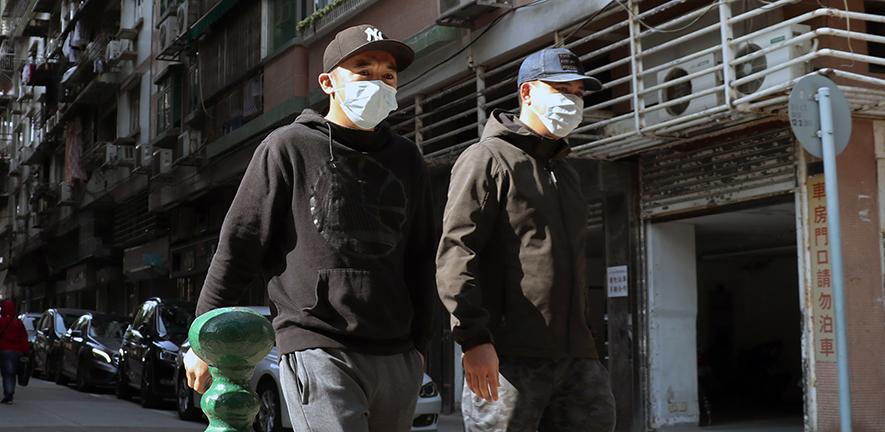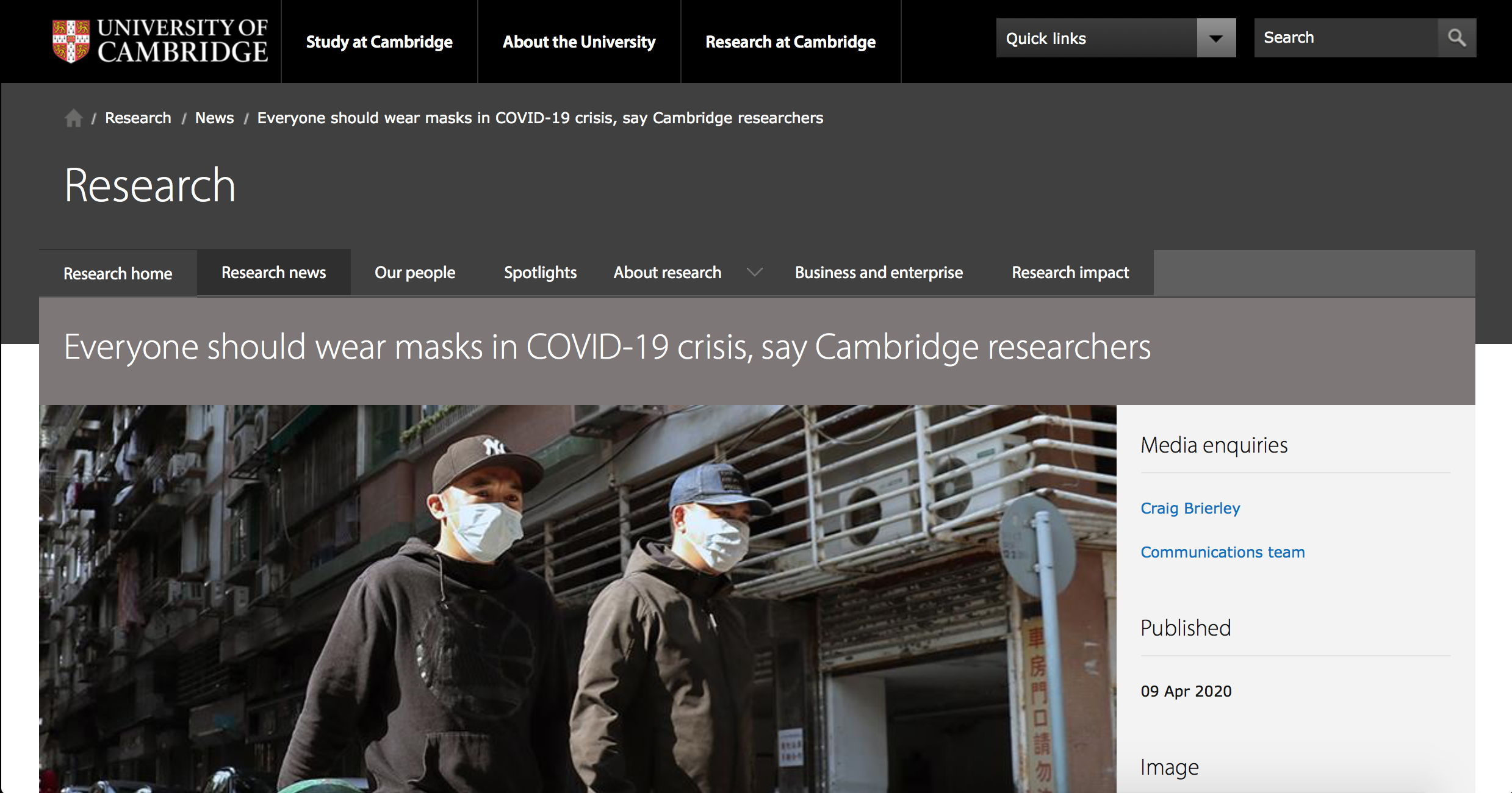Release time: 2020-04-14 09:50
Everyone should wear masks in COVID-19 crisis, say Cambridge researchers
Governments and health agencies should reconsider the current guidelines with regards to widespread mask use in the COVID-19 pandemic and recommend that masks be worn by everyone, argue a team of researchers at the University of Cambridge

More and more evidence suggests that SARS-CoV2, the virus that causes COVID-19, may be commonly transmitted before individuals show symptoms.
Professor Babak Javid, a consultant in infectious diseases at Cambridge University Hospitals NHS Trust, as well as a professor at Tsinghua University in Beijing, said: “We know that a lot of transmission of the coronavirus occurs before people show any symptoms. Wearing masks is primarily to protect others, as well as offering some degree of protection to the wearer.”
Writing in an Editorial for The BMJ, the team argue that the potential benefits vastly outweigh the possible downsides associated with mask use. Studies performed prior to the current emergency were of variable quality, and didn’t take into account how likely individuals were to comply with wearing a mask. The authors argue that in the midst of a pandemic, people are much more likely to follow guidelines.
The evidence for masks is no worse than other widely adopted and promoted behaviours, such as hand-washing, they say. Even if masks are only 20% effective at reducing transmission, previous models for an influenza pandemic suggested that substantial numbers of cases may still be prevented. Widespread education campaigns, such as those promoting handwashing at present, could help ensure the masks are used properly and mitigate some of the concerns over their proper use.
Due to shortages of medical masks for our healthcare workers, the researchers recommend cloth masks for the public. Dr Michael Weekes from the Cambridge Institute of Therapeutic Immunology and Infectious Disease (CITIID) said: “The evidence to support the use of masks in non-clinical settings may be limited, but the mass manufacture and use of cloth masks is cheap and easy, compared to the societal economic costs associated with isolation and social distancing measures.”
Dr Nicholas Matheson, also from CITIID, and a consultant at Cambridge University Hospitals NHS Trust and NHS Blood and Transplant added: “As we prepare to enter a ‘new normal’, wearing a mask in public may become the face of our unified action in the fight against this common threat, and reinforce the importance of social distancing measures.
